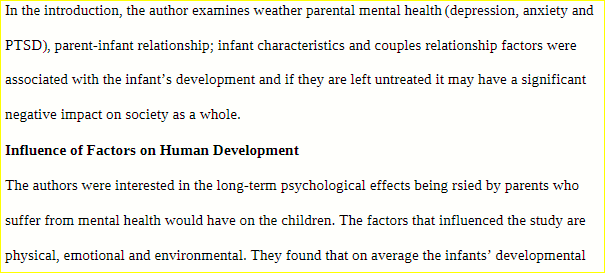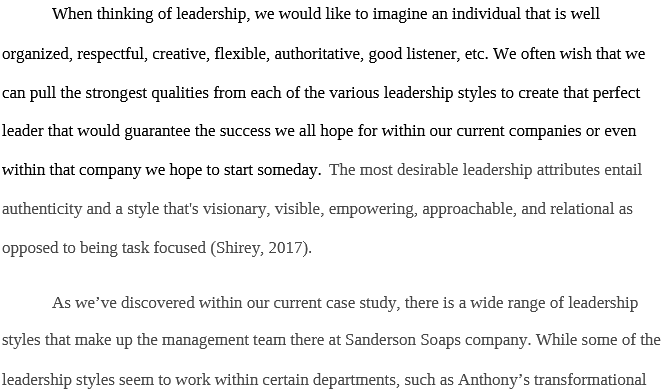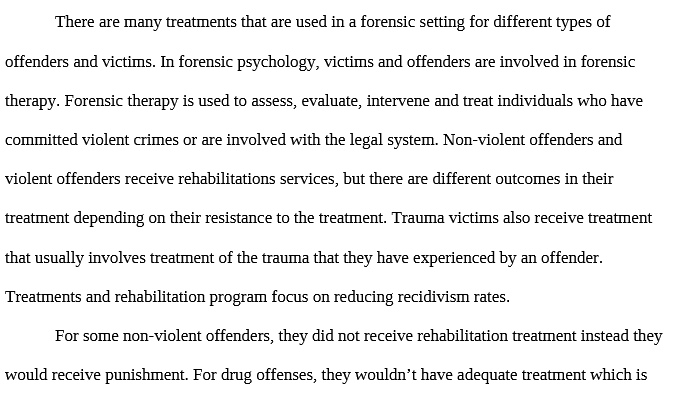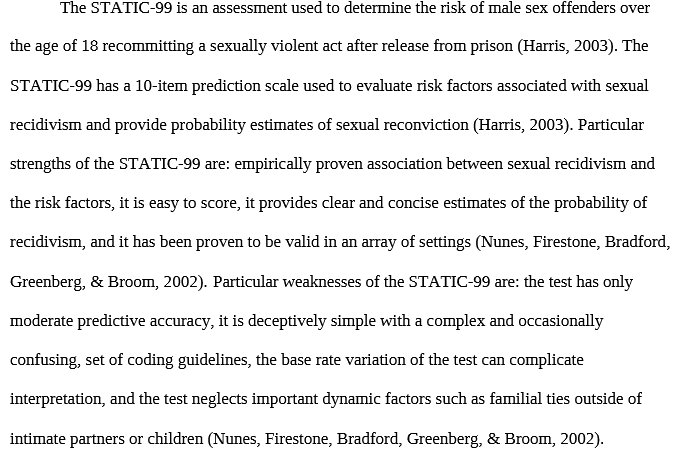Psy 211 Psy211- Milestone One Literature Worksheet.docx- Snhu
$3.99
Psy 211 Psy211- Milestone One Literature Worksheet.docx- Snhu
Author claims in the introduction, that the author examines whether parental mental health(depression, anxiety, and PTSD), parent-infant relationship; infant characteristics, and couples relationship factors are were associated with the infant’s development, and if they are left untreated it may have a significant negative impact on society as a whole. Influence of Factors on Human DevelopmentThe authors was interested in the long-term psychological effects being used by parents who suffer from mental health would have on their children. The factors that influenced the study are physical, emotional, and environmental. They found that on average the infants’ developmental. A longitudinal study from the Sussex Journey to Parenthood (UK) was used. This study followed forty-two families from pregnancy, post-partum, and the transition to parenthood. The participants were mothers who were giving birth for the first time, living with their partners, were fluent English speakers, and were over the age of eighteen. There were twenty-three infant girls and nineteen infant boys. The child development assessments were done between the ages of sixteen and twenty months old. The CARE index procedure was used to analyze video recordings or the parent and infant interactions to identify behaviors. A global dyadic synchrony score was used as well. This scoring measure was appropriate because it combines the judgments of parental sensitivity with infant cooperation
Description
Psy 211 Psy211- Milestone One Literature Worksheet.docx- Snhu
Author claims in the introduction, that the author examines whether parental mental health(depression, anxiety, and PTSD), parent-infant relationship; infant characteristics, and couples relationship factors are wereassociated with the infant’s development, and if they are left untreated it may have a significant negative impact on society as a whole. Influence of Factors on Human DevelopmentThe authors was interested in the long-term psychological effects being used by parents who suffer from mental health would have on their children. The factors that influenced the study are physical, emotional, and environmental. They found that on average the infants’ developmental. A longitudinal study from the Sussex Journey to Parenthood (UK) was used. This study followed forty-two families from pregnancy, post-partum, and the transition to parenthood. The participants were mothers who were giving birth for the first time, living with their partners, were fluent English speakers, and were over the age of eighteen. There were twenty-three infant girls and nineteen infant boys. The child development assessments were done between the ages of sixteen and twenty months old. The CARE index procedure was used to analyze video recordings or the parent and infant interactions to identify behaviors. A global dyadic synchrony score was used as well. This scoring measure was appropriate because it combines the judgments of parental sensitivity with infant cooperation.
Psy 211 Psy211- Milestone One Literature Worksheet.docx- Snhu
EthicsEthical approval was obtained from the Research Ethics Committee and the University Research Governance Committee. The infant developmental assessment was done in the participant’s homes by a researcher who was trained and qualified in Infant Development. Either one of the parents was present at all times through the assessment which lasted from forty-five minutes to an hour and a half. Written consent was obtained before the start of each evaluation and confidentiality, anonymity, as well as the right to withdraw consent at anytime, was stressed. Parents were debriefed and given the option of a summary of their baby’s development after the assessment. The study subjects were offspring of participants in the Providence, R.I site of the National Collaborative Perinatal Project which is a multisite study that enrolled more than 50,000 pregnancies nationally. Researchers followed the offspring through the first 7 years of life. In Providence, 4,140 pregnancies were enrolled between 1959 and 1966. Of the 4,140Providence, National Collaborative Perinatal Project births, 1,780 individuals were selected for participation in the adult follow-up study. Selection occurred in two separate phases in which a random sample was drawn from the entire cohort to investigate the association between several early life factors and adult psychiatric disorders.
Psy 211 Psy211- Milestone One Literature Worksheet.docx- Snhu
During phase one, initiated in 1984, 995 eligible subjects 18-27 years old with and without maternal pregnancy/delivery complications were selected. In the second phase, initiated in 1996, 1,056 subjects 30-39 years old with and without learning disabilities were selected. There was a small overlap between the first and second-phase samples. For participants included in both phases, phase-two interviews were used unless depression had been reported at the initial (phase-one) assessment, in which case the earlier information was used. Written informed consent was obtained from all subjects. The first part of the study began between 1959 and 1966 with the enrollment of pregnant women. Their offspring were followed closely for the first seven years of life. The second part of the study was conducted in two phases and was carried out through random subject selection so as to not obscure results. Researchers obtained written consent from all participants. This study fits with historical ethics in the field. This study was supported by grants from NIMH, MH-61953(Drs. Buka and Gilman) and MH-17119 (Dr. Fitzmaurice), GM-29745 from the NationalInstitute of General Medical Sciences (Dr. Fitzmaurice), and a grant from the MacArthur foundation Network on Socioeconomic Status and Health (Drs. Kawachi and Gilman).
Psy 211 Psy211- Milestone One Literature Worksheet.docx- Snhu
- PSY 211 – Lifespan Development (5015 Documents),
- PSY 215 – Abnormal Psychology (4335 Documents),
- PSY 108 – Introduction to Psychology (3759 Documents),
- PSY 223 – Statistics for Psychology Research (2652 Documents),
- PSY 216 – Psychology of Personality (1841 Documents),
- PSY 510 – Research Methods (1748 Documents),
- PSY 520 – Research Methods in Psychology II (1469 Documents),
- PSY 257 – Psychology (1451 Documents),
- PSY 310 – Criminal Psychology (1393 Documents),
- PSY 200 – FOUNDATIONS OF ADDICTIONS (1379 Documents),
Only logged in customers who have purchased this product may leave a review.







Reviews
There are no reviews yet.